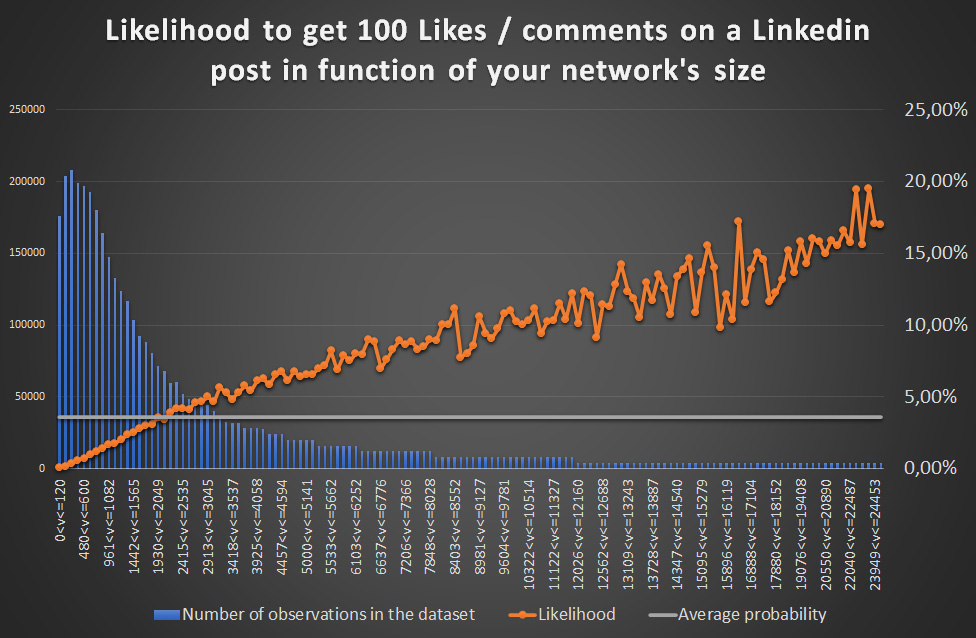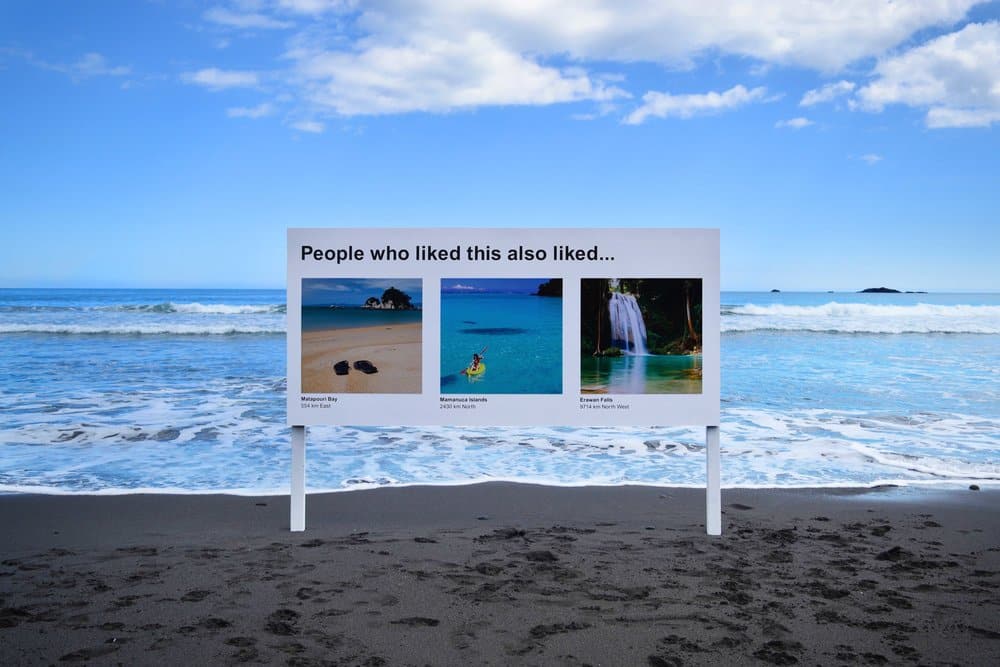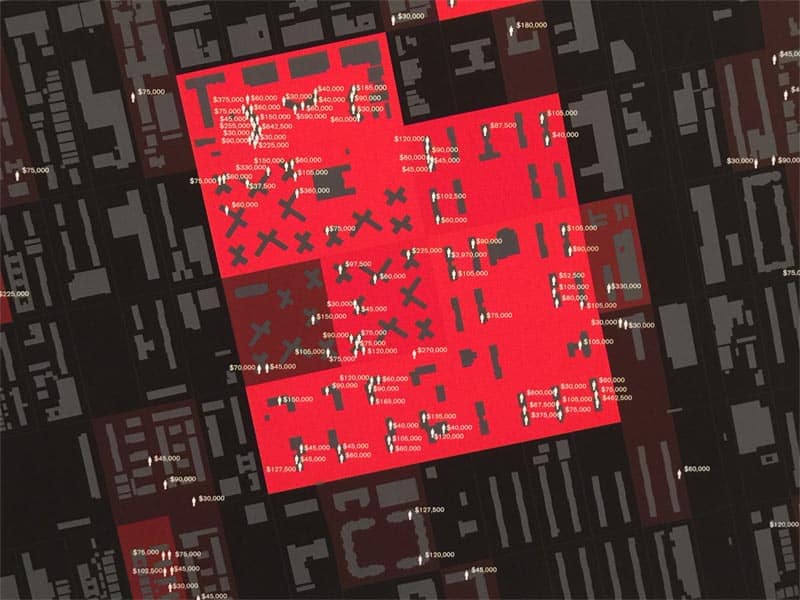Data preparation: how to reduce the processing time by 85%
By Pierre-Nicolas Schwab •
In a previous article, I realized using a benchmark of 4 ETL solutions to process a file of one billion lines. Today I test the effect of SSD and proprietary file formats on processing speed in Alteryx, Tableau Prep, Talend, and Anatella. The results are…
Here is the most crucial factor for the virality of your LinkedIn posts
After discussing the effect of emojis and the word count on the virality of LinkedIn posts, it's time to reveal THE factor that crushes all others. This factor accounts for 1/3 of the success of your LinkedIn posts. So, you should take the time to…
LinkedIn: engagement statistics by country and language [2021]
How does engagement on LinkedIn vary by language and country? Globally, 71.06% of LinkedIn posts receive no comments, and 24.39% receive no likes. The analysis of 4.599 million LinkedIn posts gives us an objective view of the essential differences that exist. The…
How to hack the recommendation algorithms?
Hacking a recommendation algorithm is an operation that can be very profitable. Indeed, some recommendation algorithms are ubiquitous in our digital life and strongly influence our behaviour. We have become dependent on algorithms without realising it. For example, 35% of…
Overview of RecSys 2018 at EBU conference on artificial intelligence
A two-day conference was held at the headquarters of the European Broadcasting Union (EBU) in Geneva on 8 and 9 November. I had the pleasure of hosting a workshop on ethics and artificial intelligence aspects on the first day and…
Signs of the Times : an artistic project on algorithmic recommendations
By Pierre-Nicolas Schwab •
Recommendations are everywhere online but offline recommendations have never been heard of. Until New-Zealand based artists Scott Kelly and Ben Polkinghorne chose to use this widespread technology in an offline context. The result is an eye-opening experiment called "Signs of…
Facebook case: towards more Big Data transparency ?
No later than Monday we were announcing the next Big Data revolution : algorithms will become more transparent in the future. We argued consumers will become increasingly aware of how sensitive their data is, eventually demanding information on how it…
Big Data becomes Art at MoMa
Visualizing and making sense of big data is in itself a difficult exercise. Successful attempts have been reported on this blog. Visualization can sometimes be so stunning that it can become a piece of Art. Columbia researchers Laura Kurgan, Eric…
 The blog of the Marketing Agency
The blog of the Marketing Agency

![Illustration of our post "LinkedIn: engagement statistics by country and language [2021]"](/blog/app/uploads/likes-comments-share.jpg)




